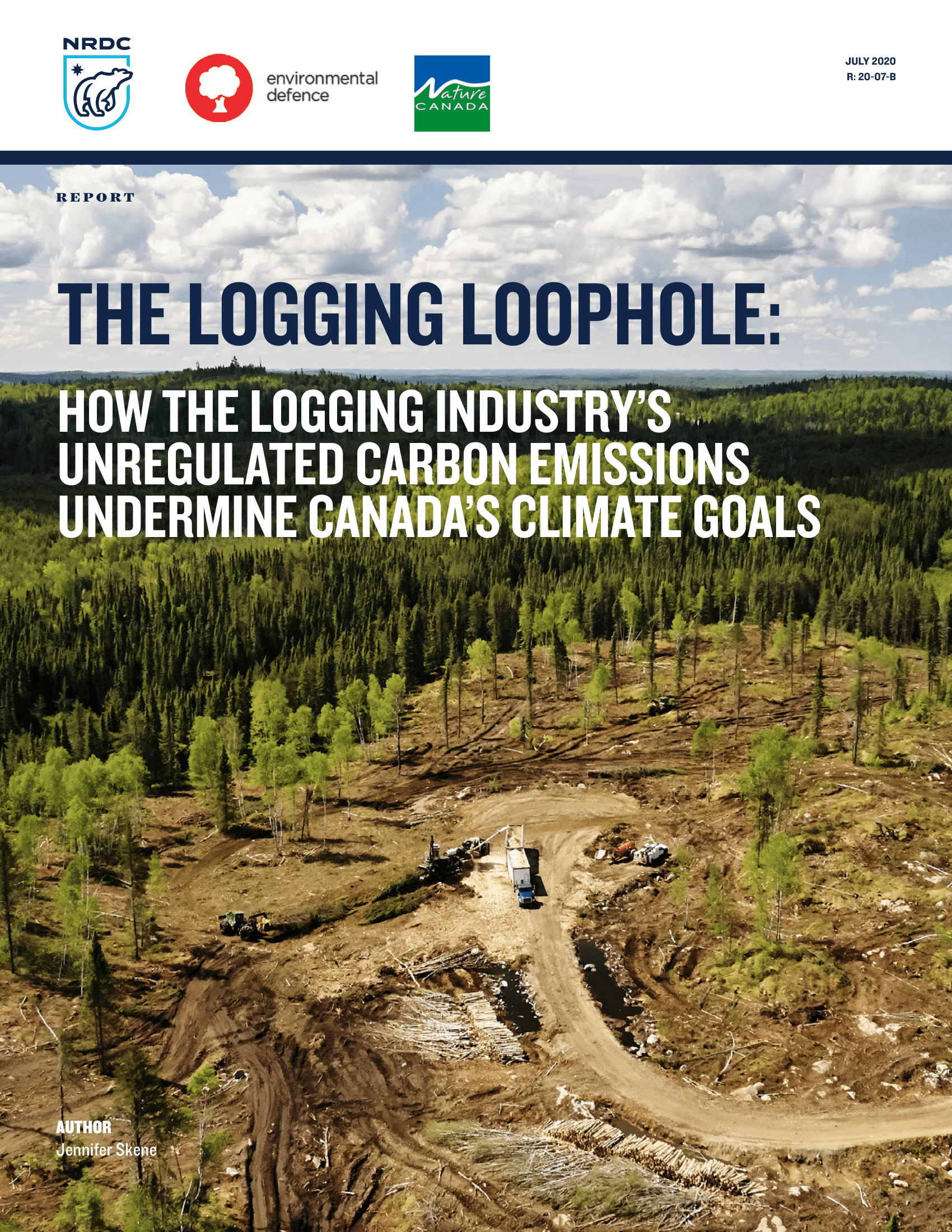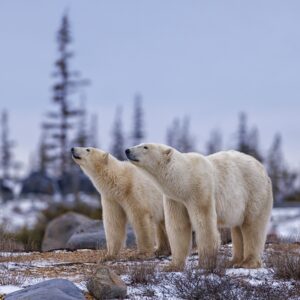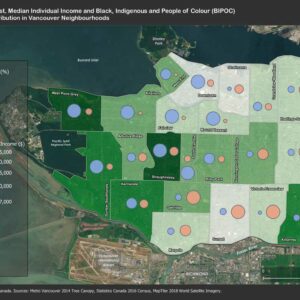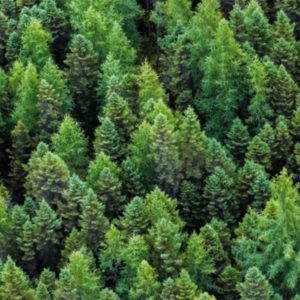Report: The Logging Loophole
How the logging industry’s unregulated carbon emissions undermine Canada’s climate goals
 Forests are crucial in the fight against climate change. They act as giant carbon vaults, storing away in their wood, leaves, mosses and soil twice as much carbon than is found in all currently accessible oil reserves . Forests continuously add to this vault and in recent decades have absorbed nearly one-third of the greenhouse gases humans release each year. Canada’s boreal forest—which comprises a quarter of the world’s remaining untouched forests and is part of the most carbon-dense forest biome on the planet—is particularly key to achieving climate targets. But industrial logging practices are undermining the boreal forest’s value for the climate and resulting in significant annual emissions.
Forests are crucial in the fight against climate change. They act as giant carbon vaults, storing away in their wood, leaves, mosses and soil twice as much carbon than is found in all currently accessible oil reserves . Forests continuously add to this vault and in recent decades have absorbed nearly one-third of the greenhouse gases humans release each year. Canada’s boreal forest—which comprises a quarter of the world’s remaining untouched forests and is part of the most carbon-dense forest biome on the planet—is particularly key to achieving climate targets. But industrial logging practices are undermining the boreal forest’s value for the climate and resulting in significant annual emissions.
This report written by Jennifer Skene looks at the ways in which the Canadian logging industry has consistently downplayed its impact on the global climate, as well as on species that live in the boreal. The industry and its representatives are overselling the forest’s capacity to regenerate, misrepresenting forest carbon dynamics, and omitting critical portions of its life-cycle analysis in order to present a narrative of climate sustainability. While the federal government has shown meaningful and encouraging leadership on tackling land-based carbon emissions, there are significant policy gaps around mitigating the logging industry’s emissions and protecting untouched forests. These loopholes bolster the logging industry’s false narratives around its own sustainability and undermine actions essential to safeguarding the boreal’s role as a climate solution. The report, produced jointly with Natural Resources Defense Council (NRDC) and Environmental Defence, provides policy recommendations to help ensure existing loopholes are closed.



